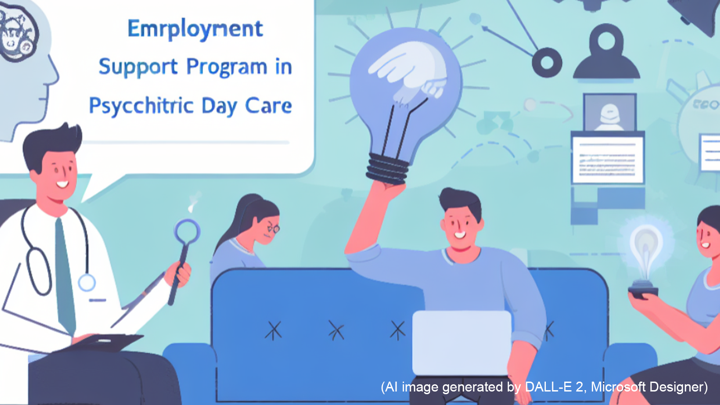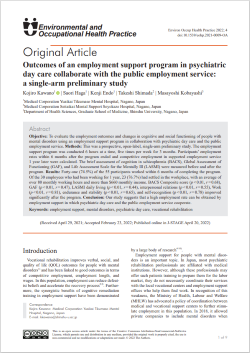#E0047 Outcomes of an employment support program in psychiatric day care collaborate with the public employment service: a single-arm preliminary study

Improving the Employment Prospects of People with Mental Disorders
People with mental deficits can often harbor defeatist beliefs and experience an impaired quality-of-life. Cognitive rehabilitation is one way of combating these deficits and improving their verbal, social, and quality-of-life outcomes. In fact, past research has shown us that employment-oriented rehabilitation support translates to better quality-of-life outcomes for such individuals. People with mental disorders can, thus, benefit from rehabilitation services focusing on cognitive support for employment.
In Japan, people with mental disorders report good employment rates upon completion of employment support intervention services that integrate cognitive rehabilitation. However, most professionals providing such services in Japan operate without partnering with employment support offices or vocational centers. Recognizing this weakness, Japan’s public employment service started an initiative to provide employment support in partnership with medical care centers.
In a unique example of this partnership, a mental hospital in Nagano, Japan partnered with the public employment service to provide employment consultation and support services to its patients with mental disorders. In this study, researchers gauged the effectiveness of this program in enabling employment for its participants after they completed the program.
They found that approximately two-thirds of the participants were gainfully employed within six months of completing the program. Many participants found jobs involving responsibilities, such as stocking shelves and customer support in supermarkets and retail stores. Sustained employment and income benefits were observed even after one year of hiring.
Moreover, improvements were reported for the memory, motor speed, verbal fluency, and social and psychological functioning of these participants. The researchers suggested that these improvements could be linked to an increase in employability prospects of the participants. Further, they observed that this employment program fared better in terms of income and work hours compared to other employment programs.
Thus, while psychiatric and vocational rehab programs are useful for improving the cognitive skills of people with mental disorders, these skills must be used for the generation of employment-oriented outcomes. The results of this study offers hope for reaping the benefits of collaborative employment support programs geared towards helping people with mental disorders go the extra mile.

Link to original journal article:
https://www.jstage.jst.go.jp/article/eohp/4/1/4_2021-0009-OA/_article
Title of the paper:
Outcomes of an employment support program in psychiatric day care collaborate with the public employment service: a single-arm preliminary study
Authors:
Kojiro Kawano, Saori Haga, Kenji Endo, Takeshi Shimada, and Masayoshi Kobayashi




